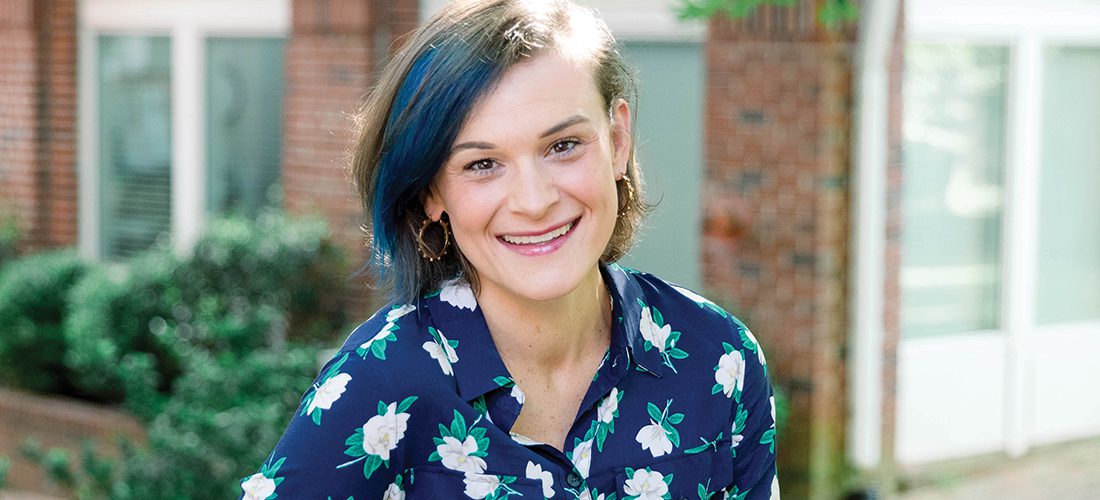Well + wise: Breaking up is hard to do
April 30, 2024

Take time to reflect on why friendships end and how to move forward.
by Juliet Lam Kuehnle
There is much research and literature about attachments and breakups with family members and romantic interests. There’s not a lot, though, about friendship breakups. Like dating, finding a friend to bond with takes time, energy and effort, as does deepening that bond. One report, published in the Journal of Social and Personal Relationships, found that it takes roughly 50 hours together to move from mere acquaintance to casual friend, 90 hours to go from casual friend to basic friend status, and more than 200 hours before you can consider someone a close friend. So when a close friendship ends and this bond is broken, it can be devastating.
There are many reasons why friendships end. Sometimes, there are seasons for friendships as people fit into certain stages of our lives. But these stages can shift, values and priorities can change, and two people can find they don’t have as much in common anymore. There can also be breaches in trust or a betrayal of boundaries that can’t be repaired. And sometimes, friendships just fizzle out with no clear catalyst. Perhaps one person feels that the relationship no longer serves them or feels reciprocal in effort.
It takes work to maintain a healthy friendship. It requires a consistent effort to ensure expectations are aligned, that the dynamic isn’t mismatched or one-sided, and that there is mutual respect. Effective communication is key, and so is flexibility. We also have to risk vulnerability and allow ourselves to be truly seen. So when you’ve put in the work and it ends — for whatever reason — it can be jarring. Particularly if you’ve had history with this person, it can be hard to let go. We may question our own grief process or fail to understand exactly what happened to cause the separation. We might doubt ourselves and have hesitation about trusting ourselves or others.
It’s important to validate your experience when going through a friendship breakup. It’s a loss like any other that can elicit a variety of emotions, including grief. Take time to reflect on the dynamic, perhaps increasing your self-awareness about your role in the relationship and identifying what you can learn from the breakup. You can find gratitude for how the friendship served you in a particular season of life and trust that you will build bonds with others that are fulfilling, as well.
Juliet spoke with Summer Baruth, a human-resources strategist and international speaker. Below are excerpts from their interview, lightly edited.
The conversation about the grief in changing friendships is often left out. It’s really complicated: two people going through their own vulnerabilities and trying to do it alongside each other and maybe it aligns, maybe it doesn’t.
It’s why friendships as adult women are actually very difficult. You may see huge groups of friends on social [media], but I guarantee you they only feel really close to one or two of them. It took me a long time to figure that out.
You hear “quality over quantity,” but people also often wonder why they don’t have that “girl squad” that’s projected on social media. But who in that squad is truly seeing and knowing you, because it is rare to actually have that dynamic.
That’s why it hurts so badly when someone pulls away or they quit engaging with you. I have a small group of people that I go to when I have a challenge [who] really see me. Otherwise, there tends to be such a mask and a character of who we “need” to be. But we save face and don’t really talk about any of this.
We can start by naming the grief that can result from friendship loss. Grief is the feeling and the response that shows up in loss. There’s so much reflection, which is uncomfortable.
It’s okay to grieve. Sometimes this kind of grief is amplified because the people are still alive. It could be the other person, could be you, could be the situation that causes a relationship to end. The world will tell you grief should end and that there’s a time stamp. We don’t talk about it. We just push it down and move on. Even me. I will hold space for everyone’s emotions and often not for my own.
Have you ever been on the side of deciding a friendship has run its course?
Yes, and I always try to flip the mirror on myself and analyze the why of it all. I made the choice based on reasons that made the most sense for me at the time or because certain friendships were more “situationships” and close because of proximity.
It can be hard to figure out these attachments and determine what is an actual quality friendship versus a situationship versus trauma bonding, etc.
Relationships are hard, especially with other tendencies like people-pleasing and self-doubt layered on top of it. A lot of my work life is spent thinking about what makes people show up at work every day and what gets them excited and showing up authentically. As a public speaker, I make it sound like I do this every day and do it right, but I’ve learned how to be more vulnerable and honest that I don’t get it right all the time. I want to meet people in their discomfort to help them get comfortable. Shame is why we don’t talk about things, because deep down we sometimes go inward and assume we did something wrong or that we were too much or not enough.
Shame and grief, in my opinion, are the most complicated emotions we have. They are very heavy emotions that take a lot of work to shed.
A lot of times grief can come from shame because you have to sit in the feelings of it. You’ll hear people say “you grieve differently than me” or “you’re further along in your grief journey than I am.” But we all react differently and bring our own trauma and history. SP
Juliet Kuehnle is the owner and a therapist at Sun Counseling and Wellness. The full interview of Kuehnle’s “Who You Callin’ Crazy?!” interview featuring Summer Baruth can be found on Instagram @YepIGoToTherapy or wherever you stream podcasts.



